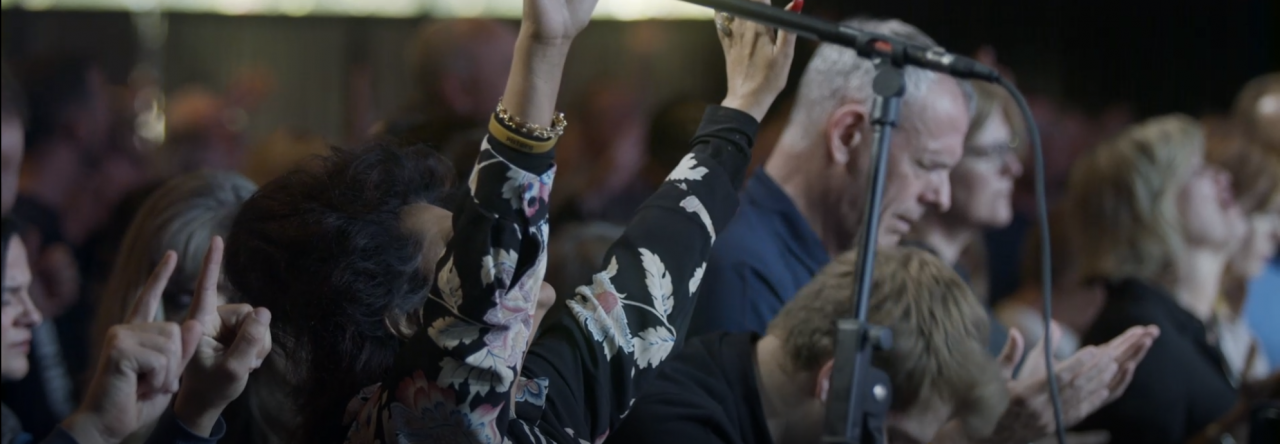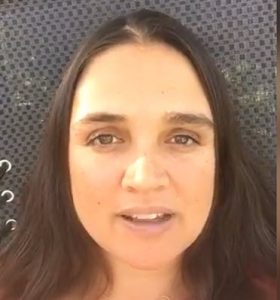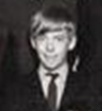 This is my Mum. Sarah McLoughlin. She is 82 years old. She recently had a mastectomy in Vancouver. I had planned to be with her for a two-week recovery.
This is my Mum. Sarah McLoughlin. She is 82 years old. She recently had a mastectomy in Vancouver. I had planned to be with her for a two-week recovery.
During this time, my son informed me that he was “eloping.” Surprise! It was happening Sunday, right in the middle of my Mum’s recovery!
How exciting! He had found his fiancé at a Christian Mission training event in Vietnam the previous January. This past year, they had been hanging out together in Kelowna. They had decided to get married! This is great news!
However, this meant I had to pivot to be present for the wedding in Kelowna while at the same time still watching over my mother’s recovery in Vancouver.
My sister volunteered to be with Mum over the weekend that I was away at the wedding.
As I drove to Kelowna, I felt confident that Mum was making progress. I could leave her for the weekend.
The wedding went fine! The couple was so happy. I met the father of the bride who flew out from Nova Scotia, especially to give his daughter away. It was a fine but small event, given the COVID restrictions.
Resting in the afterglow of the occasion, I got a call from my sister Margo. Margo was concerned about Mum.
It was Monday. Mum had not been drinking or eating for 48 hours. Margo could not find the care staff. Mum was comatose. Mum looked parched and emaciated.
Then there was a report of a COVID outbreak at the hospital. Two patients had tested positive in a ward adjacent to Mum’s recovery unit. Mum had tested negative. There was a staff shortage, though, due to self-isolation requirements.
Mum had received a sedative that was helping her sleep. However, without nursing attention, it had put her into a very vulnerable place. She was unable to feed herself. She did not have the strength to use the nurse call button, which had fallen on the floor. She could not even ask for a sip of water.
Now aware of the seriousness of her condition, my sister reported it to me. I dropped everything and promptly drove to Vancouver.
This was when I started hearing voices.
The first voice was the voice of my inner critic. It was telling me that I should have been with my mother on the weekend. That if I had been there, she would not have experienced 48 hours without food or water.
The second voice was the father in me, objecting to the inner critic. Your son’s wedding demanded your presence. Who was more important, your son or your mother?
A third voice chimed in, saying you should have asked your son to postpone the wedding until your Mum was through the recovery. Could he not have waited for two weeks?
All these voices started arguing with each other inside me.
So I called my pastor for help.
“What help do you need, Mike?” He asked.
Good question! I needed prayer! Can you please pray for me? He promised to do that!
Then I shared with him my inner dialogue. Should I have been with my Mum?
“STOP IT!” He said! In no uncertain tones! “Of course, you needed to be with your son!”
With the voice of “STOP IT” rattling around inside of me, I drove to Vancouver.
But the voices did not stop. They just got louder. Especially after seeing my mother and her condition and seeing how much she had deteriorated.
The COVID situation meant that we could only have one person visiting my mother. When I arrived, I became that one person.
The voices were arguing inside of me. You need more control, Mike. Look what they did to her over the weekend! No, you need to let go of control, Mike! Trust the process! Trust the medical system!
Then the voice of guilt chimes in! “How could you let your mother down like this?”
Then I hear my Pastor’s voice again. “STOP IT!”
STOP second-guessing yourself, Mike! STOP doubting! STOP whining! STOP with regret! Come on, Mike, PULL IT TOGETHER!
I reached out to a buddy at my church! He listened to my story. He tells me that whenever he finds himself in difficult situations, he remembers what Jesus said, “My burden is light, and my yoke is easy.” If you are finding the burden heavy and the yoke hard, you are not trusting Him, Mike!
My friend led me in a prayer to “repent” of taking “false responsibility” for my mother’s condition. Now, I had another voice to add to the cacophony. “REPENT!”
I opted for some wine and a nice meal out at my favourite restaurant to take my mind off these voices. Just what I need to feel better, I thought! That worked until I stepped on the scale the next morning and realized I had blown up my 2021 resolution to lose 10 pounds! OMG! Another voice chimes in! “YOU ARE GETTING FAT, MIKE!”
I was feeling quite miserable and sorry for myself. How am I going to pull this together?
It was Wednesday. My mother was awake. The narcotics were discontinued. She was eating with assistance. She looked better.
That afternoon I had an appointment with my therapist, online.
She did not add to the negative voices. These were the “fix it” voices telling me to do things like take control or stop feeling sorry for myself. These voices were AGAINST me, constantly questioning me and undermining me.
Instead, my therapist stepped into my story with unconditional positive regard. She took my side! She was FOR me! She ruled all the negative voices as out of order and not helpful!
She understood that whatever I do, I do because it makes sense to me. After all, if something else made sense to me, I would do that. Therefore, she does not need to judge me or lay another story of Mike on me, a story she thinks is better for me. No, she just needed to be curious and compassionate and figure out the story I am telling myself and be curious about that story.
She told me to enjoy my food and drink. She said she was proud of me for taking responsibility for my mother. She affirmed my decision to be with my son at his wedding while acknowledging that it had put me in a difficult bind. She warned me about well-meaning spiritual advice that seeks to bypass the pain. She acknowledged my pain. She felt my sadness.
Through this process, she correctly identified what was really going on! I was grieving the loss of my mother. Even though my Mum is still here, her decline and her vulnerability meant I am losing her.
Grief has its own agenda, she said. It does not STOP even if you tell it to STOP!
I was entitled to grieve even if it meant offending my sister by stepping in, being persistent with the medical staff on behalf of my mother, neglecting to say a proper goodbye to my daughter in law’s family, ignoring my friend’s concern about “false” responsibility, and my pastor’s injunction to STOP IT!
What I really needed was some emotional support so I could grieve the loss of my mother.
I needed the pain acknowledged. It is real. As unwelcome as it may be, it is not going away.
The pain was underlying my negative voices. The voice dialogue was a way of me keeping that pain out of my conscious awareness. It was a way to exile my grief and prevent it from flooding me with emotion. Now, I had permission to feel the emotional pain even if that pain made me feel uncomfortable!
I welcomed it. I gave it a listening ear. I reflected to myself what I was feeling without trying to fix it. I was able to engage the sadness and the sense of helplessness. I was able to see it all but not judge it. I sat with it for a while until the emotional energy subsided.
As I thought about this process, I realized I had discovered a place inside myself where I could stand over and against the pain and the voices.
It is a place where I can draw a boundary and say NO to intrusive thinking, NO to negative beliefs and NO to the voices that are AGAINST me.
It is a place where there is no clutter of competing ideas or forced choices, or inadequate effort.
There is room for error. I can make mistakes, I am free to fail. But mercy triumphs over judgment, so it is a safe place.
It is a place where shame is banished. Here I have permission to be unabashedly FOR myself.
I am worthy, and I am valuable; I have a right to do what I am doing. I am acceptable as I am.
I have a space that I am entitled to as a worthy human being, a footprint that I can rightly occupy and fill up.
It is a place where I have my power, and I get to decide the outcome. It is a place where my truth is honoured, my story heeded.
In this place, I get to write the story of me for me, not for anyone else. I can reframe it to make better sense of it, a positive sense, a redemptive sense, as I am doing with this article.
It is a place where I can retreat for nurture and comfort. Here, I can believe in who I am and the choices I am making. I can trust me to be me because I know who I am.
It is a place where I can get my needs met. I can be seen, and I can be heard. I can be accepted.
This is a place of comfort for me—an empathetic place of warmth, of hopefulness, of compassion for myself.
It is a place where I have a voice, a confident voice, a wise voice, a joyful voice.
This is my secure base, my haven, my refuge, my strong tower, my centre.
Finally, it is my secret place. A sacred space where I can meet with God, I can love Him with my whole heart, I can encounter Him in my own way, and I can take comfort in knowing that He too is unconditionally FOR me!
Kari Jobe sings about this place in her recent song, First Love. on the Album “The Blessing,“ released September 2020.
[Verse 1]
I’m returning to the secret place
Just an altar and a flame
Love is found here in our sacred space
I hear Your voice, I see Your face
[Chorus]
You’re still my first love
You’re still my only one
You’re still my first love
You’re still my only one
[Verse 2]
There’s a table just for You and me
Break the bread and pour the wine
Perfect union, nothing in between
I am Yours and You are mine
[Chorus]
You’re still my first love
You’re still my only one
You’re still my first love
You’rе still my only one
[Instrumental]
[Bridge]
I feel my heart beating out of my chеst
I wanna stay forever like this
May the flame of my heart always be lit
I wanna burn forever like this
I feel my heart beating out of my chest
I wanna stay forever like this
May the flame of my heart always be lit
I wanna burn forever like this
[Chorus]
You’re still my first love
You’re still my only one
You’re still my first love
You’re still my only one
You’re still my first love
You’re still my only one
You’re still my first love
You’re still my only one
[Bridge]
I feel my heart beating out of my chest
I wanna stay forever like this
May the flame of my heart always be lit
I wanna burn forever like this
[Interlude]
Oh, forever like this
Forever, forever, forever like this
Forever like this, forever like this, woah
Oh, Your love for me is great
Oh, Your love for me is great
Your love, Your love
Your love, Your love
[Bridge 2] X4
Your love is wild
Your love is wild for me
Your love is wild
Your love is wild for me
Your love is wild
Your love is wild for me
Your love is wild
Your love is wild for me
[Bridge]
I feel my heart beating out of my chest
I wanna stay forever like this
May the flame of my heart always be lit
I wanna burn forever like this


 This is my Mum. Sarah McLoughlin. She is 82 years old. She recently had a mastectomy in Vancouver. I had planned to be with her for a two-week recovery.
This is my Mum. Sarah McLoughlin. She is 82 years old. She recently had a mastectomy in Vancouver. I had planned to be with her for a two-week recovery.

 “If you’re tired of starting over, stop giving up.”
“If you’re tired of starting over, stop giving up.”


